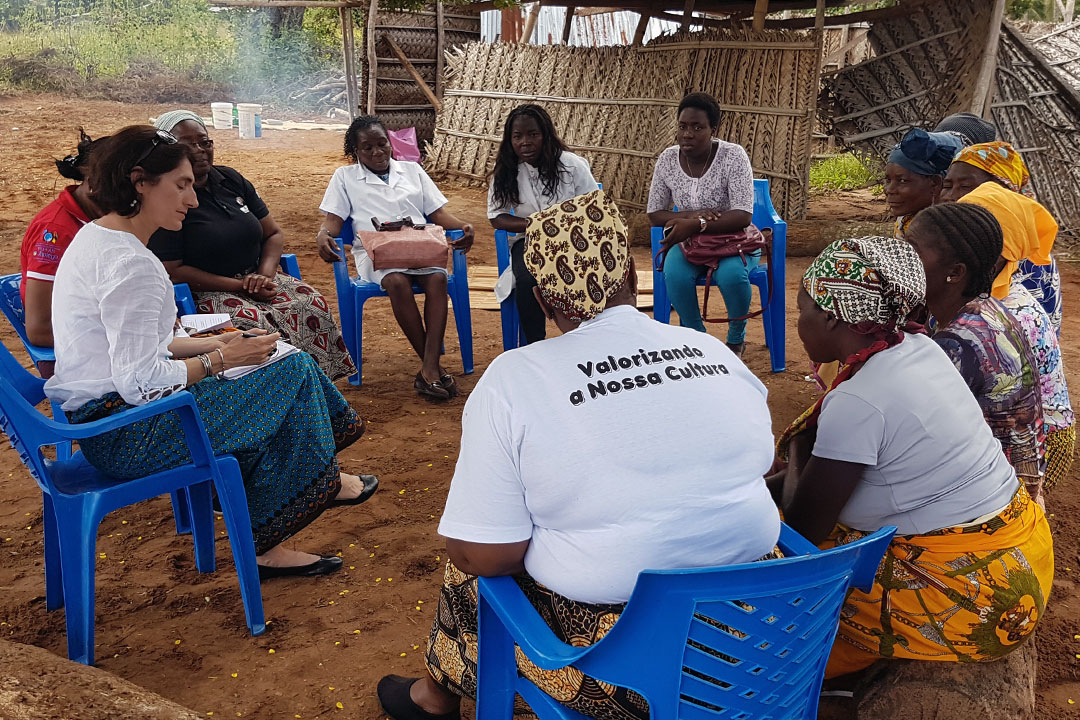
Reducing Mozambique maternal mortality rates
University of Saskatchewan researchers will be working with partners on the front lines in Mozambique’s health sector on a comprehensive five-year project to reduce the African country’s maternal mortality rate that is 70 times higher than Canada’s.
By Sarath PeirisThe $16.6-million research and training project, funded by Global Affairs Canada, aims to improve health services for women, tackle gender barriers that prevent them from accessing effective care, train more than 1,000 health professionals, and invest in medical facilities and equipment.
“This major investment by the Canadian government recognizes the University of Saskatchewan’s two decades of success in Mozambique,” said U of S epidemiologist Nazeem Muhajarine, principal investigator, and director of the Saskatchewan Population Health and Evaluation Research Unit.
“We hope to build on this success and leverage the relationships that we have nurtured, in this new project. We are adopting a community-based, family-supportive and women-enabling approach to reduce deaths during childbirth and improve infant health outcomes.”
Muhajarine and project director Denise Kouri lead a team that includes university researchers and community development leaders from Saskatoon.
About 25 U of S undergraduates and graduate students—in medicine, nursing, nutrition and physiotherapy—will participate in the project, working on-site with Mozambican staff or helping with evaluations and research.
“This transformative initiative addresses a great tragedy and demonstrates our university’s ongoing commitment to global citizenship and international community service,” said U of S Vice-President Research Karen Chad. “This community-engaged project will also provide an extremely valuable international learning experience for our students.”
The project builds on the university’s 20-year partnership with Mozambique in Inhambane province on the southern coast, and aims to improve conditions under which women give birth in 20 targeted rural communities in five health districts.
“The key to this project is that it considers community and family factors in women’s lives, as well as medical factors,” said Kouri.
The strategy involves empowering women by providing them financing to establish small-scale economic projects, such as grinding flour and raising chickens, giving them more influence in family decisions.
District hospitals will receive three new ambulances, with 20 off-road vehicles retrofitted as community mini-ambulances. As well, five small maternal clinics will be built in rural areas, with another five refurbished. Ten new “waiting houses” will enable women nearing their due date to be re-located close to a hospital.
Close to a dozen staff members and five community workers in rural areas will be hired to educate people about gender equity and women’s sexual and reproductive rights. The plan calls for training more than 1,000 new health care workers—about half of them maternal and child health nurses, along with preventive medicine technicians and nutritionists—and providing practitioners with improved technical skills to better respond to women’s needs.
A key aspect of Muhajarine’s research is a study of near-fatalities related to complications involving pregnancy and childbirth. The study will help researchers understand the capacity and functioning of the medical and social systems associated with maternal care, and develop measures to reduce maternal deaths.
Muhajarine will travel to Mozambique two or three times a year, while Kouri will be there for several months a year, and gender specialist Jessie Forsyth will be in Inhambane for about eight months. Meanwhile, U of S pediatrics specialist Mahli Brindamour, who was involved with projects there in 2010, will return next year to provide continuing professional education to front-line hospital staff, while Dr. Eddie Rook of the College of Medicine will host workshops in community health clinics.
Brindamour has seen language communication issues involving hospital staff and patients, while a strongly hierarchical hospital system intimidates patients, who often aren’t treated well. While these are barriers to reducing maternal mortality rates, Brindamour considers the challenge well worth the effort.
“This project is what global health should be all about.”
Sarath Peiris is a communications contributor to the U of S Research Profile and Impact unit.

